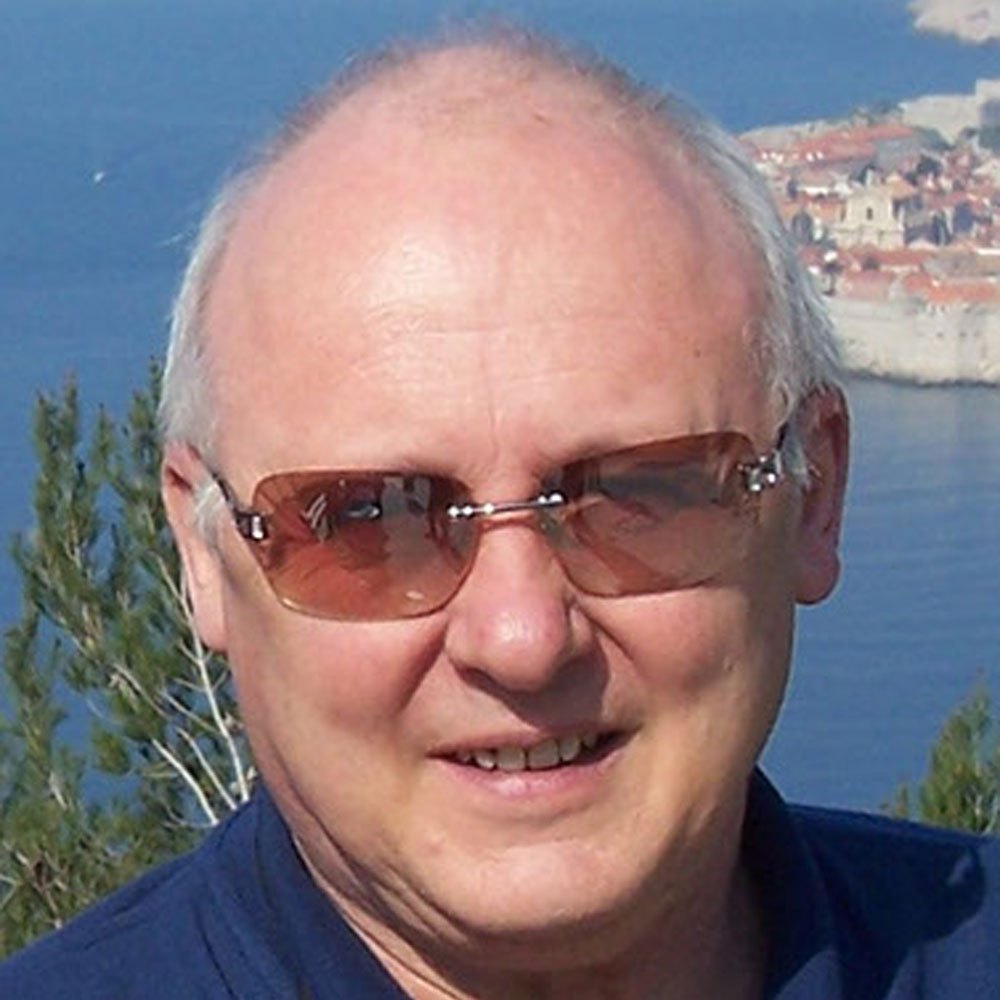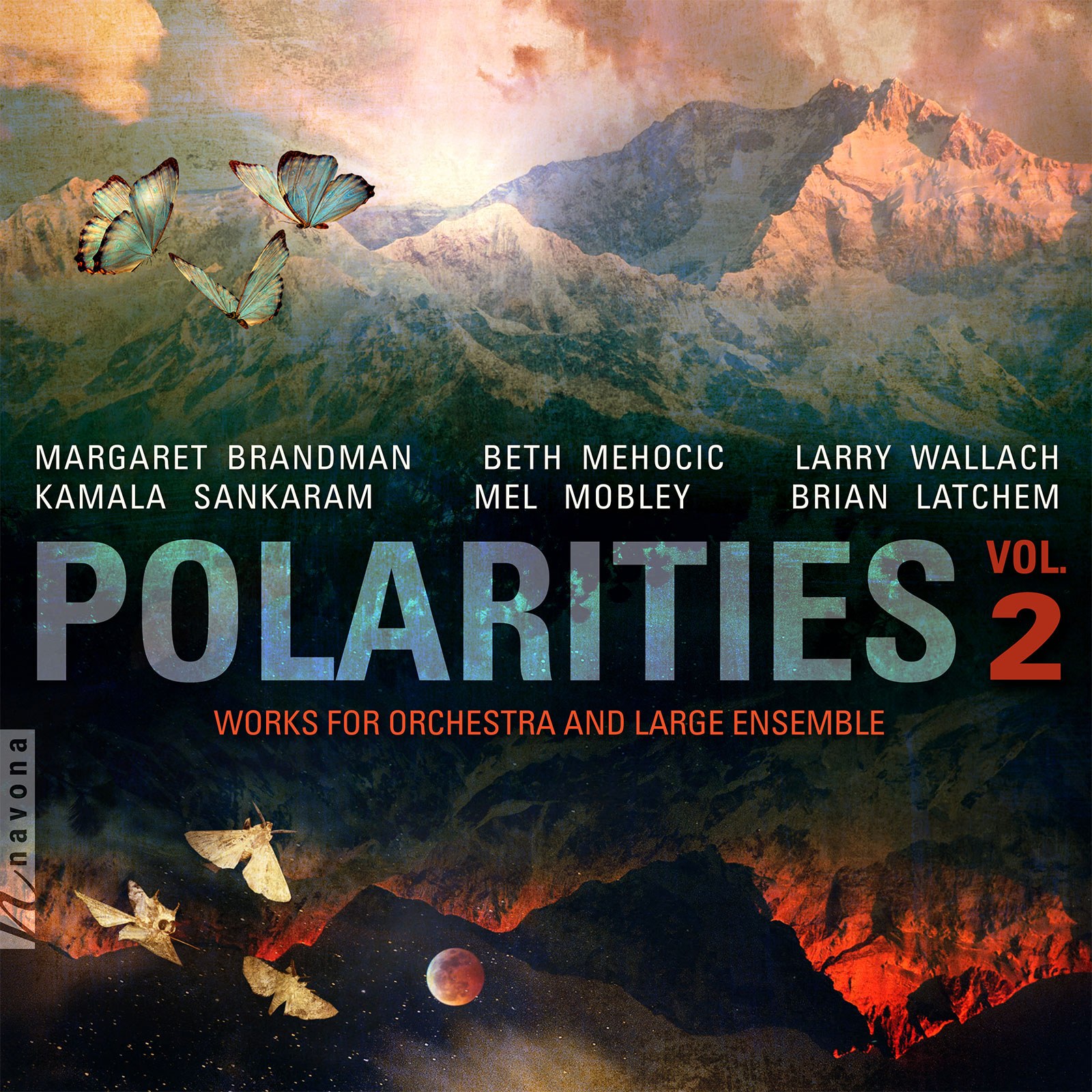
From yin and yang to public debate, much in the world revolves around opposing forces. POLARITIES VOL. 2, an album of new presentations in classical music, documents the intricacies of these forces, expressing the emotions, sensations, and scenes associated with the extreme ends of conversation and change. Featured in this collection is composer Brian Latchem’s Suffolk Variations, a piece born from two pages of surviving manuscript from 1967 that Latchem infused into his modern day work.
Today, Brian is our featured artist in “The Inside Story,” a blog series exploring the inner workings and personalities of our composers and performers. Read on to learn how he obtained his first piano, and how his handwritten manuscripts contributed to his piece on POLARITIES VOL 2…
When did you realize that you wanted to be an artist?
I was 5 years old when I decided that music was to be my life, although what form that took, I was yet to work out. In my early years I was surrounded with music. My parents both played violin and when I visited my paternal family they would often play — in the front parlour — string quartets. So, at the age of 5 I asked my parents if I could learn the piano. Fortunately, a distant relative aged 100 was being admitted to a care home and her piano became available. My parents paid £10 for the 1901 (Victorian) Broadwood upright piano that I still have lurking in the corner of my study. By the beginning of my secondary school career at the age of 11, I had decided that I wanted to become a conductor of an orchestra. It was then that I was given the advice — by my music teacher — to think about teaching music as a “safe way” through to becoming a conductor. So, I became a music teacher that dabbled in conducting.
What was your most unusual performance, or the most embarrassing thing that happened to you during a performance?
One embarrassing moment happened to me just a few years ago while I was singing with a local choir here in Felixstowe. The choir had decided to perform the St John Passion by J.S. Bach and due to a problem with vocal scores it was decided to perform it in German. I was invited to sing the role of Pilate and duly rehearsed with the conductor until I was completely confident of what I was doing. We had a small professional orchestra with young professional singers for the main solo parts. The final rehearsal with the orchestra went well. I was standing behind the guys singing Jesus and the Evangelist who in turn were behind the harpsichordist. All was going well until we came to a section between Pilate and Jesus. For some reason I didn’t hear the harpsichord and subsequently sang the whole passage in an entirely different key! Fortunately, at the end of the passage Jesus replied in the right key without batting an eyelid. That’s why they’re professionals and I’m not!!
What is your guilty pleasure?
My guilty pleasure is dark chocolate! This is odd in many ways as throughout my life I have never particularly liked sweets. Even as a small child I preferred savoury food, so cake, biscuits, and sweets were always just an occasional treat. But the delights that met me on visiting Germany and Austria with the likes of Black Forest Gateau and Sacher Torte changed my mind. Unfortunately, about 13 years ago I was diagnosed with diabetes and sugar became a serious no-no. Over the last couple of years, having lost a considerable amount of weight I am now in remission so I can indulge myself with a little dark chocolate. So, every evening before bed I have a dark chocolate biscuit as a treat!
What was your favorite musical moment on the album?
My favourite musical moment of the album has to be during my piece Suffolk Variations, with the lead up to the climax of the whole piece. After I retired from teaching, I bought Sibelius and started to transfer various handwritten manuscripts I found from my days at college in the mid 60’s and various works since to the computer program. I came across two pages of handwritten manuscript, which is the actual passage leading to the climax of the work. During the recording of this particular passage, I was asked for my reaction. I suggested to Jan, the recording engineer, that it perhaps needed a little bit more “wellie.” I’m not sure whether he or the orchestra would understand my request. It was obvious from Jan’s comment and subsequent reaction from the orchestra that they understood perfectly and gave it a little more “wellie!”
What does this album mean to you personally?
The inclusion of my piece on this album has meant a tremendous amount to me. In part it is a recognition of my lifetime writing music. I have had many of my compositions performed over the years by a variety of performers, from children to local professional musicians. To me it has been a fantastic achievement to be part of a professional organisation such as PARMA Recordings with using highly professional orchestras like the Janacek Philharmonic for my recording. All the favourable comments made by these talented and skilled professionals has made the journey so worthwhile. My only sadness is that my parents are not around to share this achievement.
Is there a specific feeling that you would like communicated to audiences in this work?
The overriding feelings that I hope to communicate through this piece are of calmness and peacefulness through a lyrical English sound. Even in the energetic passages such as the lead up to the climax of the work there is a controlled quality that is typically English. It surprised me that the Czech Orchestra was able to create this feeling from their exquisite playing. One of the things many people who live here in Suffolk — on the East coast of England — talk about is the openness of the skies with beautiful sunrises and sunsets, which creates — at times — a peacefulness and calm serenity when the world can be a stressful place.
Explore Brian’s Latest Release
POLARITIES VOL. 2
POLARITIES VOL. 2 is available now from Navona Records. Click here to visit the catalog page and explore this album.

Brian Latchem is an English composer who was born in Bath and started to learn the piano at the age of 5. He comes from a musical family with both parents, grandparents, and great grandparents playing a variety of musical instruments. He trained to be a music teacher and started his career in Felixstowe, where he taught Music and Drama to pupils aged 11 to 14. In 1972 he moved to a new school to become responsible for music, teaching children from 5 to 11.

